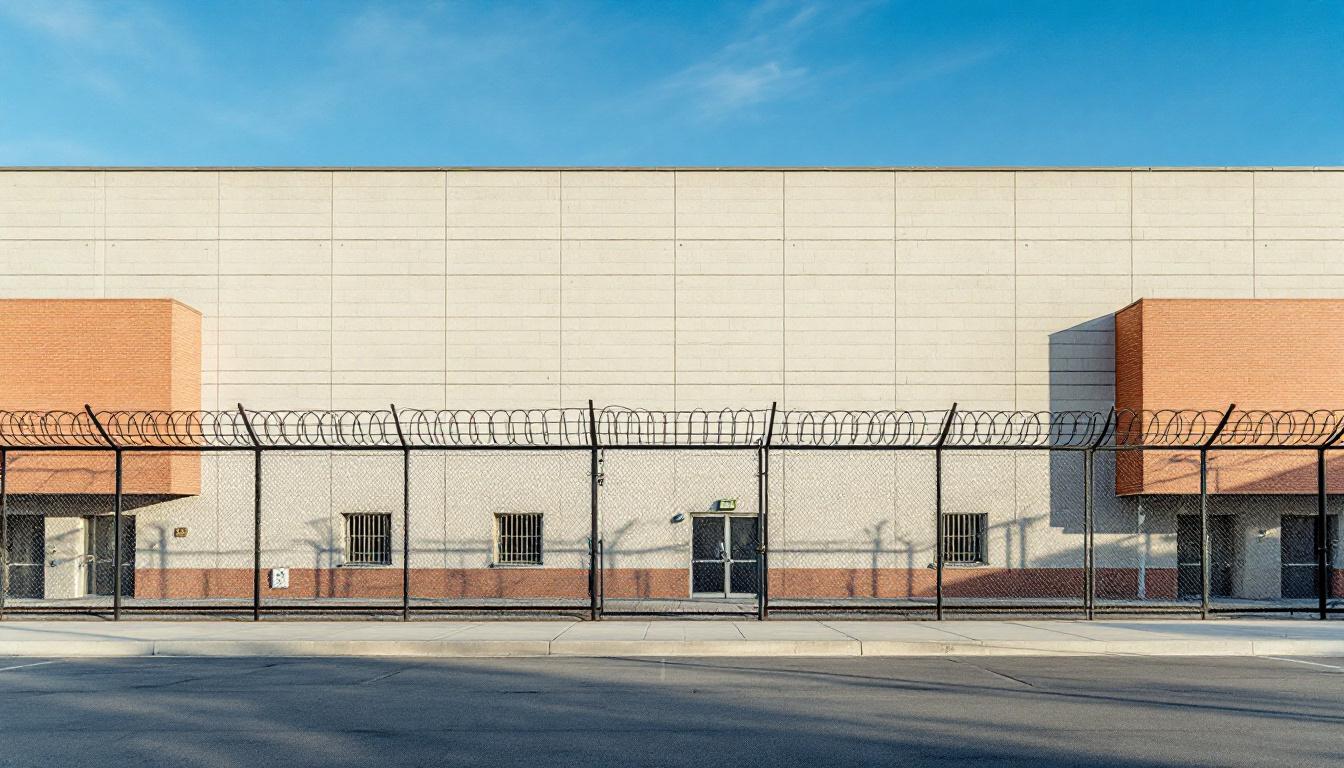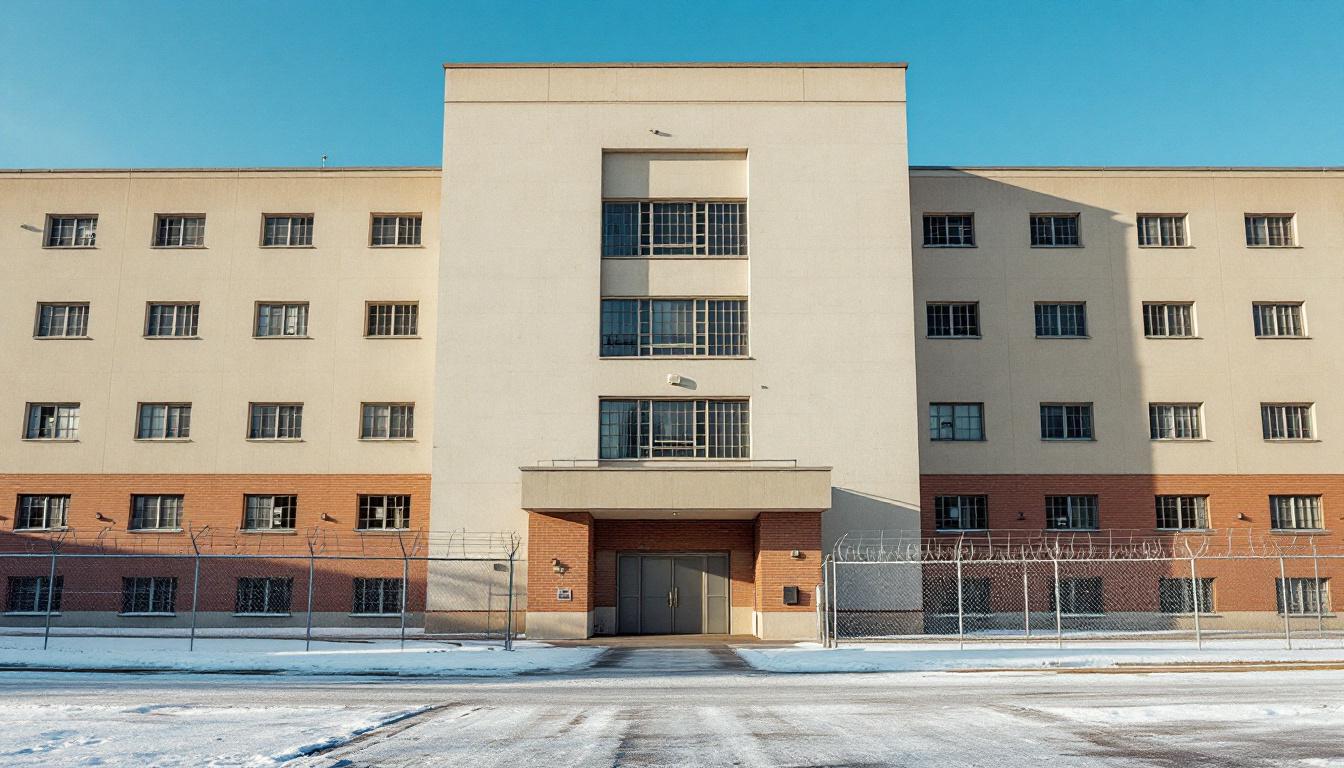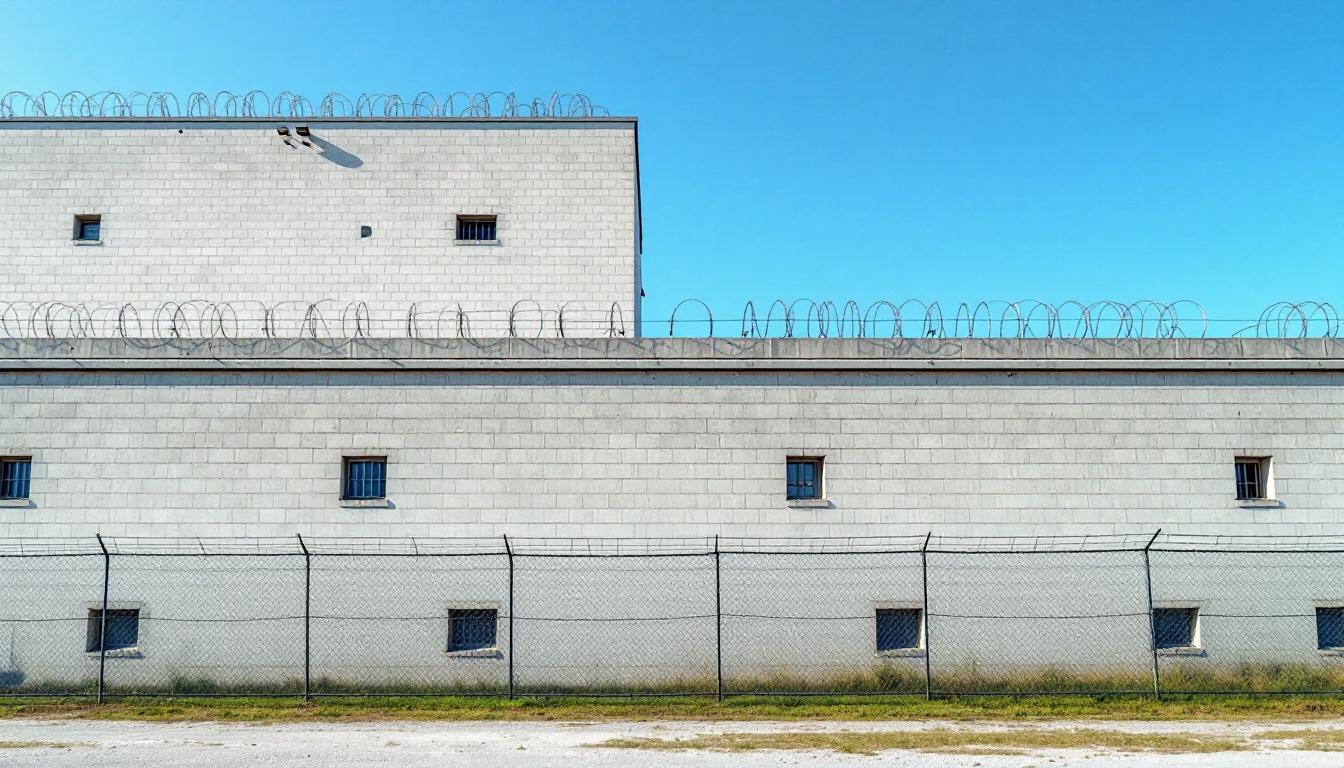
Quick Navigation
How to contact an inmate at Ellis County Sheriff
This comprehensive guide will walk you through how to connect with an inmate at Ellis County Sheriff. Follow the steps below to find an inmate and send letters and photos:
- Search for the inmate using our search tool below
- Create your account or log in to Penmate
- Write your message (up to 6,000 characters)
- Send instantly - inmates receive printed copies daily
Find an Inmate
Search for an inmate to start communicating today
Tip: You can search by first name, last name, or inmate ID number
To contact a person at Ellis County Sheriff start by searching for the person on the facility website. Perform a search by following these steps:
- Step 1: Enter their first name and last name into the search form and click "Search"
- Step 2: Locate their inmate record
- Step 3: Write down their Inmate ID and any housing information provided
Important! Be sure to enter the person's full name. Nicknames should not be used.
How to Send Messages to Inmates

You can use your phone or computer to send emails, letters, and photos to an inmate. Messages are sent electronically to inmate tablets or kiosks at the facility. If you would like to send a message, start by searching for an inmate at Ellis County Sheriff.
Sending Photos and Postcards

A great way to send love and support to a loved one at Ellis County Sheriff is to send photos and postcards. It only takes a few minutes to send photos from your phone and it makes a huge difference. You can also mail postcards with words of support and inspiration, or design your own postcard for special moments like birthdays and holidays.
Important! Be sure not to send any explicit photos or they may not be approved by the facility. You can also use a photo printing app like Penmate to make sure your photos are printed at the correct size (4x6 or 3x5) and are mailed according to the rules and regulations of Ellis County Sheriff.
Frequently asked questions about Ellis County Sheriff
-
How long does it take to deliver a message?
If you're sending an email message your letter is usually delivered within 24-48 hours. For messages sent via mail you should expect delivery within 3-7 days. All messages will need be approved by Ellis County Sheriff.
-
How much does it cost to send a message to Ellis County Sheriff?
You can send a message free using your phone or mail a message via USPS for the price of a $0.60 stamp and envelope. You can also purchase credits or e-stamps from services starting at $1.99.
-
What services can I use to contact an inmate at Ellis County Sheriff?
Penmate
You can use Penmate to send letters and photos to an inmate from your phone. It's an easy way to stay in touch during your loved one's incarceration. Use the inmate locator to find an inmate's location and contact information, then you can send messages within a few minutes.
Securus messaging
Securus may be another option for communicating with an inmate at Ellis County Sheriff. You can create a friends and family account and purchase credits to send messages. All messages will be reviewed and must be approved by the facility.
JPay
Some county jails and state prisons may support sending messages with JPay. You must register an account with the system, find your loved one, and purchase stamps to send messages. For some locations you can also attach photos.
Smart Jail Mail
You may also check if Smart Jail Mail is available at Ellis County Sheriff. Smart Jail Mail is operated by Smart Communications and has contracted with some state and county jails. After purchasing credits, your messages and photos are sent to the facility, printed out, and then handed out to your loved one.
-
What is the mailing address of Ellis County Sheriff?
Mailing address:
Ellis County Sheriff
105 W 12th St
Hays, KS 67601
Phone: (785) 625-1040 -
What are the visiting hours at Ellis County Sheriff?
Visiting hours at Ellis County Sheriff vary by housing unit and security level. Generally, visits are scheduled on weekends and holidays, with some facilities offering weekday visits. Contact the facility directly at (785) 625-1040 or check their website for the current visiting schedule. Visits typically last 30-60 minutes and must be scheduled in advance.
-
What items are prohibited when sending mail to Ellis County Sheriff?
Prohibited items typically include: cash, personal checks, stamps, stickers, glitter, glue, tape, staples, paperclips, polaroid photos, musical or blank greeting cards, hardcover books, magazines with staples, and any items containing metal or electronics. Only send letters on plain white paper with blue or black ink. Photos must be printed on regular photo paper (no Polaroids). Always check with Ellis County Sheriff for their specific mail policies.
-
How do I send money to an inmate at Ellis County Sheriff?
You can send money to an inmate at Ellis County Sheriff through several methods: 1) Online using JPay, Access Corrections, or the facility's approved vendor, 2) Money orders mailed directly to the facility with the inmate's name and ID number, 3) Kiosks located in the facility lobby, or 4) Over the phone using a credit or debit card. Fees vary by method, typically ranging from $2.95 to $11.95 per transaction.
-
Can I schedule a video visit with an inmate at Ellis County Sheriff?
Many facilities now offer video visitation as an alternative to in-person visits. At Ellis County Sheriff, video visits may be available through services like Penmate, Securus Video Connect, GTL, or ICSolutions. Video visits typically cost $10-20 for 20-30 minutes and must be scheduled in advance. You'll need a computer or smartphone with a camera and reliable internet connection. Contact the facility for their specific video visitation policies and approved vendors.
-
What identification do I need to visit an inmate at Ellis County Sheriff?
All visitors must present valid government-issued photo identification such as a driver's license, state ID, passport, or military ID. Minors must be accompanied by a parent or legal guardian who can provide the minor's birth certificate. Some facilities require visitors to be on the inmate's approved visitation list, which may require a background check. Contact Ellis County Sheriff for specific ID requirements and visitor approval procedures.
-
How can I find out an inmate's release date?
To find an inmate's release date at Ellis County Sheriff, you can: 1) Use the online inmate search tool if available, 2) Call the facility's records department, 3) Contact the inmate's case manager or counselor, or 4) Have the inmate provide this information during a call or visit. For privacy reasons, some facilities only release this information to immediate family members.
Facility Overview

About Ellis County Sheriff
Nestled in the heart of western Kansas, Hays serves as home to the Ellis County Jail, KS, a correctional facility that plays a vital role in maintaining community safety while supporting individuals on their path toward positive change. This KS correctional facility operates as an integral component of the region's justice system, typically housing individuals awaiting trial, serving shorter sentences, or participating in various court-ordered programs designed to address underlying issues that may have contributed to their legal circumstances.
The facility generally emphasizes evidence-based approaches to corrections, recognizing that effective rehabilitation often requires addressing multiple factors in an individual's life. Residents services may include educational opportunities, substance abuse counseling, mental health support, and vocational training programs that help prepare individuals for successful reintegration into their communities. These programs typically operate in coordination with local organizations and service providers throughout the Hays area, creating a network of support that extends beyond the facility's walls.
Within the broader Midwest corrections landscape, this county jail often serves as a crucial link between law enforcement, the courts, and community-based services. The facility's approach generally reflects modern correctional practices that balance public safety with rehabilitation goals, understanding that supporting positive behavioral changes benefits both individuals and the wider Ellis County community. Through its various programs and services, the facility works to provide residents with tools and resources that may help them build more stable, productive lives upon their release.
Programs & Services
Educational initiatives form the cornerstone of rehabilitation efforts, where residents typically engage in comprehensive learning opportunities designed to address fundamental skill gaps while fostering personal growth. These evidence-based approaches often emphasize both academic advancement and practical skill development, recognizing that successful reintegration requires a multifaceted foundation. The facility's philosophy centers on providing structured pathways that may deliver measurable outcomes through consistent participation and individualized support systems.
Academic programming often includes basic literacy enhancement, GED preparation, and distance learning opportunities that allow residents to pursue higher education goals despite their current circumstances. Vocational training initiatives complement these educational foundations by offering hands-on experience in trades such as electrical work, providing residents with marketable skills that may significantly improve their employment prospects upon release. These programs typically combine theoretical instruction with practical application, ensuring participants develop both technical competency and workplace readiness skills.
In addition to these foundational offerings, therapeutic initiatives address underlying issues that may have contributed to criminal behavior through comprehensive substance abuse treatment and structured group therapy sessions. The facility often includes specialized programming such as sex offender treatment for appropriate populations, utilizing evidence-based methodologies that focus on accountability and behavioral modification. These support services work synergistically with educational and vocational components, creating a holistic approach that may deliver sustainable change by addressing both immediate skill development needs and deeper psychological factors that influence long-term success.
Daily Life & Visitation

The rhythmic cadence of structured schedules currently forms the backbone of residential life, where predictable routines deliver essential stability throughout each day. This carefully organized framework continues to provide residents with clear expectations and consistent patterns that help maintain order and purpose within the facility environment. Generally, days begin with early morning counts and meal service, followed by work assignments, programming activities, and designated recreation periods that typically occur at regular intervals.
In addition to this structured timeline, living accommodations typically consist of shared housing units where residents maintain personal spaces within dormitory-style or cell-based arrangements. The facility usually provides basic furnishings and bedding, while residents may often purchase additional approved items through the commissary system to personalize their living areas. Meals are generally served in designated dining areas at scheduled times, with menu options that typically meet basic nutritional requirements and accommodate common dietary restrictions when possible.
Despite this controlled environment, various programs and activities deliver opportunities for personal development and family connection. Work assignments may include kitchen duties, maintenance tasks, or facility cleaning responsibilities that often provide structure and skills development. Recreation periods usually offer access to exercise equipment, outdoor areas, or recreational activities when available. Family communication continues through scheduled visitation periods and phone privileges, while mail correspondence typically remains an important connection to outside support systems, helping residents maintain relationships that may prove valuable during their stay and beyond.
Ready to Connect?
Start communicating with your loved one today
Search for an Inmate








